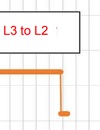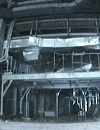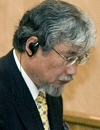Japan
Kyushu Electric plans to replace turbines at two units of the Genkai nuclear power plant
Shimane-2 unit has been restarted in Japan
The weight of the corium sample extracted at the second unit of the Fukushima Daiichi NPP is 0.7 g
Japanese regulators have approved the extension of the life of the Takahama-1 unit
TEPCO has started dumping the ninth batch of Fukushima water into the ocean
China and Japan held technical consultations on the issue of draining Fukushima water
 Fukushima - China and Japan hold consultations
Fukushima - China and Japan hold consultations
Japan and China held a consultation last month on the dumping of tritium-contaminated water into the ocean from the site of the Fukushima Daiichi nuclear power plant.
This is stated in an article published in the Japan Times. In accordance with the terminology adopted in Japan, the original article calls the water as treated, not as contaminated with tritium.
At the meeting, as sources close to the topic told reporters, the issue of China ban on imports of marine products from Japan was also discussed.
The consultation was organized online. It is claimed that the parties were unable to make significant progress, as China, despite Japan request, kept the import ban in force.
There have been no failures in the operation of nuclear power plants after a series of powerful earthquakes in Japan
TEPCO has started draining the second batch of tritium-contaminated water from Fukushima
Uranium-241 was synthesized in Japan
TEPCO will not be able to start extracting fuel at Fukushima Daiichi-2 in 2022
 Fukushima water - NRA gave the go-ahead
Fukushima water - NRA gave the go-ahead
Japanese Nuclear Regulatory Agency (NRA) has approved TEPCO plan to dump tritium-contaminated water accumulated at the site of the Fukushima Daiichi emergency nuclear power plant into the ocean.
The official approval was preceded by a 30-day public comment period.
The contaminated water is stored at the site in about a thousand tanks. This is water purified after passing through a specialized ALPS system, which is capable of removing most radioactive isotopes, except tritium.
The volume of stored water is gradually increasing, despite all efforts to reduce the rate of its accumulation. Now it is about 1.37 million cubic meters. According to forecasts, the existing tanks will be fully filled in the middle...
Nuclear News Ticker - March 03, 2021
 Fukushima Daiichi - Drop in Water Levels
Fukushima Daiichi - Drop in Water Levels
On February 18, as parameters, such as primary containment vessel water levels and temperature, were being monitored, the Unit 1 primary containment vessel experienced a drop in water level.
As a result, other parameters were checked and it was found that some of the temperature gauges in the primary containment vessels for Unit 1 and Unit 3 have been showing decreasing trends since February 15 and February 17, respectively.
Therefore, we have been assessing related parameters since February 18, and today February 19 we determined that water levels in the Unit 1 and Unit 3 primary containment vessels are decreasing.
Furthermore, since no significant fluctuations...
Nuclear News Ticker - December 16, 2020
Nuclear News Ticker - November 28, 2020
Nuclear News Ticker - November 25, 2020
Peaceful Nuclear News - October 28, 2020
238 of 566 fuel assemblies are unloading from SFP-3 at Fukushima Daiichi NPP
231 of 566 fuel assemblies are unloading from SFP-3 at Fukushima Daiichi NPP
224 of 566 fuel assemblies are unloading from SFP-3 at Fukushima Daiichi NPP
Japanese HTTR has taken another step towards restart
443 nuclear units are operating in the world, 52 units are under construction
449 nuclear units are operating in the world
Delegation from Japan visited Novovoronezh NPP
450 nuclear units are operating in the world
Documentation for regulators on the Sendai nuclear power plant will be ready by the end of March
Japan begins the discussion of plans for creating a command bunkers on NPP
The Governor of Niigata opposed to re-start Kashiwazaki-Kariwa NPP
Kansai Electric will increase the tariffs for the household sector for the second time
The fate of the Fukushima Daini still not determined
Three Japanese Banks Agree to Refinance Tokyo Electric Power Company: Reports
Costs, Regulations Hinder Construction of Fukushima Micro-Hydropower Station: Reports
Japan Former Prime Ministers Call for Nuclear-Free Country During Rock Festival: Reports
Japan to Restart Nuclear Reactors Despite Volcanic Risks
Hiroshima May Host Nuclear Test Ban Treaty Conference
Japan PM: Nuclear Power Plants Will Not Reopen Unless 100% Safe
Japanese Official: Japan Should Follow Russian Example in Setting Fukushima Regulations
Parliament Member: Thermal Power Plants Could Lay Base for ‘Subnuclear’ Society in Japan
South Korea Plans to Lift Embargo on Japanese Seafood
UN Predicts Global Warming-Induced Disasters in Japan by 2050
South Korea to Return Radiation-Contaminated Scrap Metal to Japan
Atomic Bombing of Nagasaki
August 9 Marks 69th Anniversary of Nagasaki Nuclear Attack
Japan, US Planning Unmanned Submarine - Reports
Japan Plans to Increase Agriculture Exports to Russia - Ministry
Hiroshima Day - International Day of Nuclear Disarmament
Japan Marks 69th Anniversary of Hiroshima Bombing
Japan Says Russia Attempted to Change Status Quo With Crimea
Over 380,000 Japanese Advised to Evacuate Due to Torrential Rain
Japan Signs Deals to Strengthen Economic Ties with Brazil, Latin America
Peace Symposium in Japan Discusses Steps Toward Nuclear - Free World
Japanese Police Concealed Over 81,000 Crimes to Improve Statistics
Japan, France Agree on Expanding Defense Cooperation
Locals Concerned About Safety of Japan Kashiwazaki-Kariwa Nuclear Plant
Japanese Security Council Approves Export of Sensors for US Missile Systems – Reports
Japan to Reopen First Nuclear Plant Since Fukushima Disaster
Japanese Lawmakers Propose $6Bln Gas Pipeline From Sakhalin
Japanese Government Snubs Anti-Nuclear Public Sentiment
Russian Customs Rejects Radioactive Cars From Japan
Japanese Radioactive Soil Seized in Kiev
6.5 Magnitude Earthquake Strikes off Japan Coast
Thousands in Tokyo Protest Restarting Nuclear Power Plants
Japan, India to Go Ahead with Nuclear Talks
Russia, Japan Demand N.Korea Comply With UN Resolutions
Russia Ready to Boost Energy Supplies to Japan – Putin
Japanese PM Says Help Still Needed in 2011 Quake-hit Regions
Japan Cabinet Resigns, Cedes Power to Conservatives
Japan Deploys Anti-Missile Shield Against North Korea Rocket
Three Foot Tidal Wave Follows Japan Quake
Japan Reactor to Go Back Online
Japan Restarts Two Nuclear Reactors
A long-term storage facility for nuclear submarine reactor compartments was opened in Razboinik Bay
Japanese Boost Nuclear Submarine Reactor Disposal
China, Japan, South Korea Warn North Korea over Nuclear Tests
Japan Starts Work to Shut Down Last Reactor
Japan May Go Without Nuclear Power – Minister
Japan Mourns One Year Anniversary of Deadly Quake
Japan plans to set 40-year limit on reactors life span
7.0 magnitude earthquake hits east of Japan
Japan sets up four expert groups for another Fukushima probe
Russia to start direct uranium supplies to Japan – Rosatom
Gazprom mulls electric power projects in Japan
Japan, France to take joint nuclear safety measures
Japan nuclear power plants to close
Tackling quake aftermath top priority says Japanese PM
Yoshihiko Noda named new Japanese premier
Japan Congress Against Atomic and Hydrogen Bombs urges end of nuclear industry
Powerful quake shakes northwest Japan again
Reactor in Fukui prefecture shut down over cooling problem
Japan set to conduct stress tests on its reactors in operation
Japan car-makers to work weekends to save energy after quake
Japan estimates damages from quake, tsunami at $210 bln
Radiation registered in tea at Japan Shizuoka factory
Japan PM likely to step down by August - media
 Fukushima brings together Tokyo, Seoul and Beijing
Fukushima brings together Tokyo, Seoul and Beijing
Some commentators like to use arithmetic to compare various international organizations. If we add up the annual GDP of China (the world's second largest economy), Japan (the third largest economy) and South Korea (whose GDP is nothing to sneeze at) and compare the sum to the GDPs of the G8, which also includes Japan...nothing will happen. This is a senseless exercise because regional and international organizations are not created to flex muscles - economic or otherwise.
The GA is merely a top-level forum for discussing and regulating the ongoing formation of a common economic space in this part of the world. ASEAN performs a similar function in Southeast Asia. The purpose of these organizations is completely clear. The G8, meanwhile, appears no longer to serve a purpose.
But the GA is a special case. There are few organizations in the world where the members have such long-standing animosity toward one another. For example, while Japanese Prime Minister Naoto Kan, his Chinese counterpart Wen Jiabao and South Korean President Lee Myung-bak have agreed on new plans for cooperation.
Japan quake disaster may cost $184 billion - economics minister
Japan sets out new course after tsunami
Japan shuts down Hamaoka NPP over unfavorable quake forecast
Japan TEPCO to sell assets to raise compensation funds
Japanese Imperial couple to visit Fukushima province
Japan has no plans to dump spent nuclear fuel abroad - state secretary for foreign affairs
Japan to continue use of nuclear power despite Fukushima nuke crisis - govt
Japanese reactor to be shut down for unplanned check
Japan lifts restrictions on milk supplies from areas near quake-hit nuke plant
Japanese rally against nuclear power industry
Japan to help Saudi Arabia build nuclear power plants
Japan dismisses information on ambitions for security alliance with Seoul
Japan hopes for security alliance with South Korea
Russian government approves nuclear cooperation deal with Japan
Kazakhstan plans to capture 40% of Japan's uranium market
Japan ready to supply enriched uranium to Iran - paper
The JSC Atomenergoprom and Toshiba Corporation have agreed to carry out joint activities on the market of nuclear fuel cycle products and services
 Lead-bismuth CANDLE - Japanese challenge for SVBR
Lead-bismuth CANDLE - Japanese challenge for SVBR
Lead-bismuth fast neutron technologies in Russia are close to the demonstration. According to the declaration of the director of the energetic machine building department of the Russian machines company Vladimir Petrochenko, the first NPP with SVBR-100 reactor can be built in Obninsk in 2015.
But Russian SVBR has foreign rivals. One of them can become Japanese lead-bismuth reactor that is using the CANDLE burnup conception.
Reactors of high capacity, as it is well known, can be placed only in the regions with high energetic demands or/and developed nets. For the bigger part of countries such monsters as EPR-1600 or APWR-1700 can be elementary useless - countries of the third world won't be able to consume the produced amounts of electricity.
Besides, developing countries would prefer minimizing possible efforts on behalf of nuclear reactors. Ideally, facilities that don't demand or demand next to nothing servicing during the operation that would be brought to the site by the deliverers, assembled and after the campaign would be returned back to the country of manufacturer would suit them.
 Masako Saito: plutonium denaturation is important due to global risk of nuclear proliferation
Masako Saito: plutonium denaturation is important due to global risk of nuclear proliferation
The main idea is to increase the part of the 238Pu either by transmutation of the minor actinides or by increasing of 235U enrichment in the uranium fuel.
Why 238Pu is important for the denaturing of plutonium? This is because of his huge decay heat. Also the spontaneous fission of 238Pu produces a lot of neutrons.
Why is it so important to denaturate plutonium? It is because of the non-proliferation. A lot of countries want to use the nuclear technology in the near future. It means the global risk of nuclear proliferation will increase. So, the security problems will be much more important in this century, and you must solve it.
Russian expert: Reliability of Russian NPPs were checked in Spitak
Quake hits Japanese nuclear plant: a Russian view
I saw a burning transformer on the television. It was no shock to a specialist-a tank transformer can catch fire with the slightest spark. Every project envisages safety measures. Transformers are set apart from each other, so fire cannot spread to cause a leak. Radioactive water could have leaked from the reactor containment sump-but I don't think it could get out of the circuit and pollute the environment, whatever the press might be saying. As for polluted sea, I think that's a paranoid allegation.
The expert dismisses speculation that seismic danger was underestimated when the plant site was chosen: The Japanese are top-notch professionals, and exacting and pragmatic to the utmost degree in choosing plant sites. It was a mere accident, I think.

